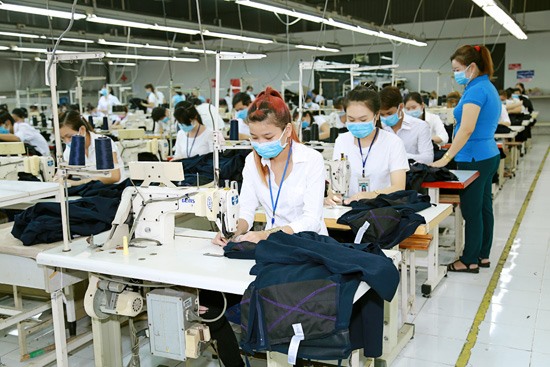 Society
Society

Some 80 per cent of female industrial workers above 35 years old are either getting fired or quitting their jobs, according to a recent study.
 |
| A recent study reveals three reasons for unemployment of female workers aged 35-45 nationwide – low salary, work pressure, and getting laid off by employers. — VNA/VNS Photo Hải Âu |
HÀ NỘI — Some 80 per cent of female industrial workers above 35 years old are either getting fired or quitting their jobs, according to a recent study.
The study was commissioned by the Institute for Workers-Trade Unions under the Việt Nam General Confederation of Labour (VGCL).
The study reveals three reasons for unemployment of female workers aged 35-45 nationwide – low salary (59.6 per cent of participants), work pressure (39.1 per cent) and getting laid off by employers (22.6 per cent).
Older women face higher risk of losing jobs, according to the study.
“Even those with more than 10 years of experience are getting laid off due to the restructuring of businesses or they are quitting their jobs because they can’t handle the harsh work environment,” Vũ Quang Thọ, director of the institute, was quoted by Dân Việt online newspaper.
“These are worrisome results,” he said.
Nguyễn Toàn Phong, director of the Hà Nội Centre for Employment Service, said female workers account for 50 per cent of the total workforce that had lost their jobs. Female workers aged 18-35 had a higher chance of getting another job compared with those who were above 35, he added.
He said the centre would develop more policies to support women in the job market, especially those living in rural areas and those with disabilities.
Nguyễn Thị Hồng, a workforce expert, was not surprised by the study’s findings.
While creating favourable conditions to protect women when they give birth and raise children and allowing them to retire earlier than men, the preferential labour policies for female workers unintentionally imply that women have to take good care of their families and also do well at work to keep their jobs, according to Hồng.
“Since women are physically weaker than men and have to work harder both at home and at work, it’s no surprise 80 per cent are quitting or getting fired,” she said.
Policies need to be improved to encourage women to take advantage of their labour resources, she added.
Society and families also need to lift the burden off women’s shoulders, not forcing them to handle both domestic and social responsibilities, she said. — VNS




